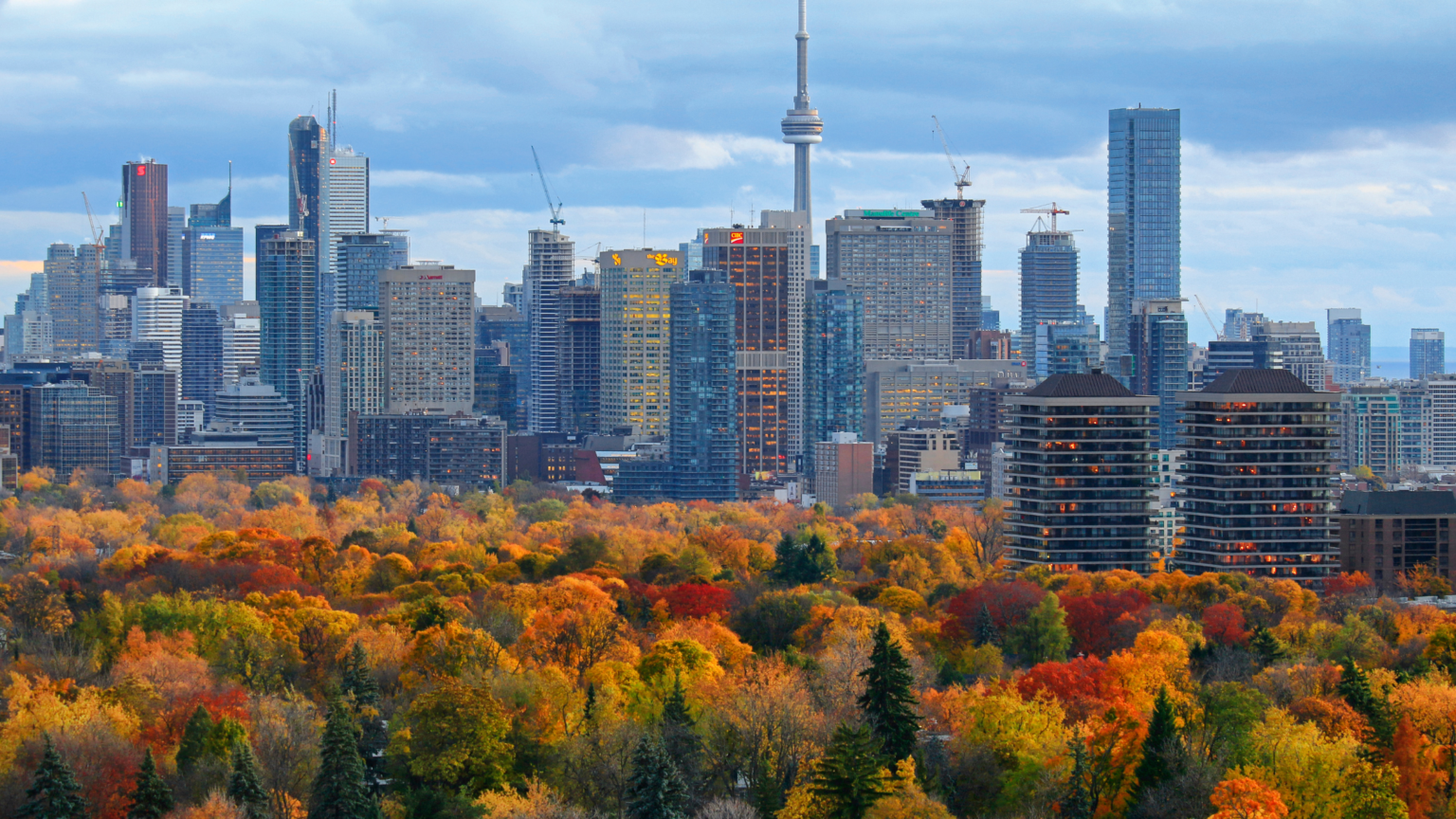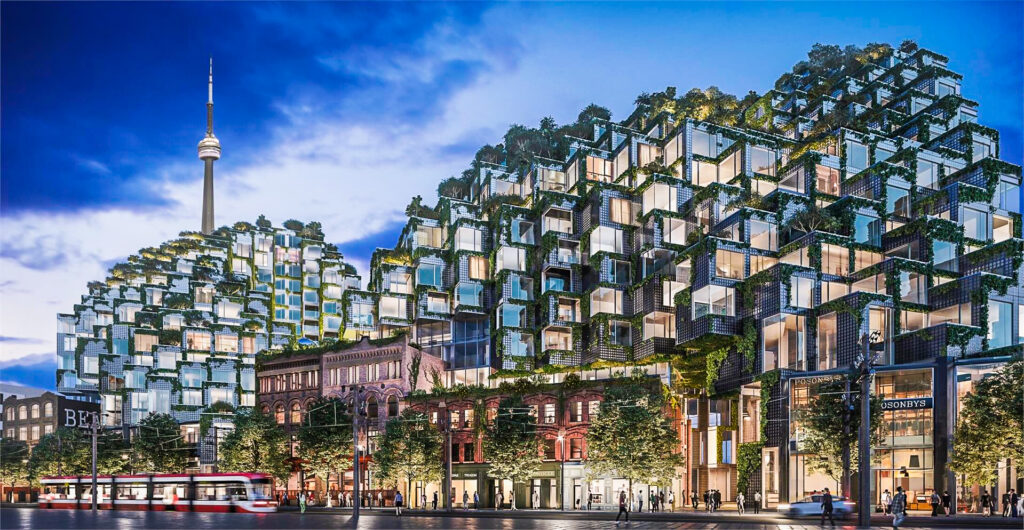Introduction
The dynamic nature of the Toronto real estate market presents a complex tableau that commands attention. Metamorphosing from a local to a global hotspot, Toronto's real estate market has rhythmically pirouetted around varying socio-economic, political, and urban factors. These multifaceted interactions craft intricate configurations, painting a granular picture of the market’s fluctuating ecosystem.
Intersected by demographic shifts, influenced by international investment landscapes, shaped by the transforming contours of cultural trends, and governed by fluctuating policy trajectories – the intricacies mesh into a dense network of factors commanding Toronto’s real estate trends. This careful dissection of the realities shaping the Toronto real estate market aims to facilitate an enriched understanding of the past, present, and future trajectories of one of the most desirable real estate destinations globally.
The following outlines decode the complexities, revealing the unexplored layers, the unseen depth, and the unheard narratives that collectively steer Toronto's real estate market.
Examining the Intricacies of Toronto's Real Estate Phenomenon
Toronto's real estate market, an endearing puzzle, brims with dynamism, punctuated by proliferating urbanisation, fluctuating economic dominants, and intricate policies. Remarkably, keen observers discern a vibrant cosmopolitanism threading the cityscape, primed nonetheless by a crescendo of foreign input. Eager eyes argue - government regulations are the unseen puppeteers behind the theatre of market trends. So, amid this motley of influences, where shall the prudent investors cast their nets? Perhaps at those delightful catchments of high desirability?
Peeking into the murky crystal ball, predictors hazard unsure guesses. Swinging pendulums of fortunes, framed by sheer uncertainties, but the tantalising possibilities of thriving neighbourhoods promise potential goldmines. Therein lies the charm and the challenge; the complexity and the charisma; the perplexity and the promise of Toronto's enigmatic real estate economy.
Analyzing the Economic Influence on Toronto's Real Estate
Analysis of Toronto's real estate market is incomplete without considering the intricate impact of prevailing economic conditions. Economic prosperity, however fragmented or universal, shapes the housing market significantly. It distinctly touches on property purchasing power!
Developed and booming economies like Toronto's provide impetus for substantial real estate growth. However, pitfalls and economic downturns alter this trajectory.
It's compelling to consider Toronto's economy's intricate dance with global financial trends. Fluctuations in international markets can sway local property prospects, entwining the local and global in an unending tango.
Closely interlinked is the potential influence of the job market. Employment health, predominant salary trends, income growth rates, and even prevalent industry sectors, contribute discernibly to purchasing power, influencing real estate trajectories uniquely.
Reflectively, local economic nuances are crucial for a comprehensive understanding of Toronto's real estate ebbs and flows.
Unlocking the Sellers' Secrets in Toronto's Real Estate Market
The smorgasbord of Toronto's real estate—breathtaking in its scale and diversity—creates a playground for sellers full of possibilities. Yet, hidden beneath the city's sparkling skyline, lie secrets to successful selling. A savvy seller's weapon? Meticulous introspection into key selling factors.
Location, for instance. It's always whispered tantalizingly in every savvy seller's ears. Toronto—where pockets pulsate with youthful energy and rows of Victorian houses exude timeless charm—presents a gold mine. Here, each neighborhood narrates a unique tale making the city's property puzzle enticingly complex.
Next, think property type. Lofts, condos, detached homes—each whispers to a different buyer's fantasy. Thriving in Toronto's humming market requires sellers to nurture an intimate understanding of these property types and the unique allure each holds.
Finally, the crux of the matter: timing. Ride on trends, they say. However, discerning patterns in the frenzied buzz of Toronto's real estate market demands a herculean effort. Warm spring, chilly winter or somewhere in-between—nailing the right selling time can make all the difference]
Toronto’s market, an enigmatic entity, dances to its own rhythm. However, with mastery of these key factors, sellers might just join the lead.
Interplay of Infrastructure Development and Toronto Real Estate Trends
Infrastructure development, without doubt, holds the reins of real estate market trends in Toronto. With a record number of cranes dotting the skyline, constructing both residential and commercial developments, it's a truth universally acknowledged that Toronto's bustling infrastructure is a muse for its real estate hike.
Burgeoning infrastructure not only invites global investors but also magnetizes locals to new locales, resulting in versatility in price trends. Homeowners jockey for proximity to new transport links, parks, and business hubs, while property investors relish the rising rental incomes and robust capital appreciation.
However, infrastructure boons bear a double-edged sword. A hive of construction activity might deter potential buyers seeking tranquility and less chaos. Therefore, an astute understanding of infrastructure development and real estate linkages can benefit both buyers and investors, navigating the Toronto property landscape.
Moreover, conscientious city-planning retains heritage buildings while accommodating new developments, nurturing Toronto's unique cityscape. Thus, efficacious infrastructure plans can fuel a prosperous, balanced, and aesthetic real estate market in Toronto.
Dissecting Commercial and Residential Real Estate Trends
Peel back Toronto's urban facade, and you'll find a mosaic of real estate patterns, the mélange of commercial and residential trends shaping this city's skyline. Lately, the residential narrative has been particularly compelling, knotted with escalating home prices and a dearth of affordable rentals. However, peel back another layer and there emerges an interesting subplot; commercial spaces, once humming, now carry the buzz of uncertainty due to the pandemic-induced shift to remote work.
Yet, life in Toronto pulses on - spotlighting different shades of challenges and opportunities. On one hand, technology firms have displaced traditional office tenants, recalibrating commercial spaces into dens of innovation. The push and pull factors in these parallel universes of living and working spaces are hypnotic, and their intertwining trends hold the power to redefine Toronto's real estate narrative in a most unpredictable yet exciting way.
What does the future hold? Let's dare to delve deeper.
Examination of Toronto’s Real Estate Market Growth Comparative to Other Major Cities
The real estate landscape in Toronto is an ever-evolving spectacle, juxtaposed with the dynamism of global cities like New York, London, or Sydney. The intriguing shift to a seller's market, pricing trends, and the "new normal" catalyzed by remote work, all contribute to creating a cityscape that kaleidoscopically changes!
Who can forget urbanization driving Toronto's condo boom? Green spaces whispering trends into the city's architectural veins like a zealous cartographer mapping out a city's future! Toronto now stands with a unique allure amongst other major cities, displaying its real estate prowess on a multinational stage.
With Toronto's market growing exponentially, it stubbornly challenges traditions in international real estate narratives. Yet, here lies Toronto's charm: a chameleon city, mirroring global trends while carving its distinctive tale of stone and steel.
The Transforming Landscape of Toronto's Real Estate
The city of Toronto, a bustling metropolis, stands as a paradigm of a seller's market, shaken by the swift undercurrents of urban gentrification and international overshadowing.
Subsequent surge in property prices paints the picture of a city on the brink of a seismic shift - a mutation characterized by a blend of architectural panache co-existing with an increasing consciousness towards sustainable, eco-centric approaches.
At the crossroads of this shift lies the epicenter of Toronto's rental market - a dynamic ecosystem ostensibly at odds with the burgeoning housing prices. With environmental factors, both physical and societal, punctuating Toronto's real estate trajectory, the market is set to pivot indefinitely, transforming to an entity that is unrecognizable from its original blueprint.
Incongruously, the presence of international investment plays no small role in catalyzing this shift. The cityscape of Toronto - now a magnet for investors far and wide, hums with whispers of change foreshadowing an invigorated, yet uncertain, future.
Exploring Toronto's High-Rise Condo Market and Its Intricacies
Within Toronto's vibrant real estate cosmos, the high-rise condo market presents an intriguing spectacle. Ceaselessly abuzz with life, this market reflects an amalgamation of youthful vivacity, aging elegance, and a distinct urban flavor that screams Toronto!
Interestingly, Toronto's shifting demographics cast a palpable influence on this market. The surge in lonesome older adults, paired with a bloom in spirited millennials seeking independent living, fuels an unspoken demand. It's a landscape where solitude embraces companionship, courtesy of condos.
Meanwhile, subtle yet piercing cultural shifts are leaving an indelible mark. An embracing of minimalist lifestyles feeds the growing popularity of micro condos. Ironically, they're small in size, massive in appeal! No surprise that bidding wars, an intriguing and intense phenomenon, are a common spectacle in this market.
Transit-oriented development impacts weigh heavily too. Better transit equates to better accessibility, pushing up condo appeal and prices. The flipside? Tax policies, notably, Toronto's uniquely structured property tax, can dampen enthusiasm. Understanding these dynamics fundamentally shapes one's perspective of Toronto's high-rise condo market.
Conclusion
The vibrant real estate terrain of Toronto, deeply influenced by multifaceted factors, exhibits perplexity akin to a well-woven tapestry. From urbanization and foreign investment influences to government policies, it thrums with activity. Condos, luxury estates, co-living spaces - the market's diversity adds to its charm! Government policies, shifting trends incited by population growth and technology, have steered the course of its development, creating a hotbed for investors.
Interestingly, the winds of change nudged by COVID-19 and escalating remote work trends have been instrumental in shaping this bustling market.
Toronto's condo market and the rise of the seller's market have witnessed a noticeable churn. Concurrently, historical trends and economic factors have also contributed to the bustling market scenario.
As the city embraces change - courtesy of burgeoning urbanization, changing demographics, and cultural shifts - its real estate trends continue to evolve. Indeed, the prosperity of the Toronto real estate universe rests not just on current trends but also future possibilities that hold immense potential!







